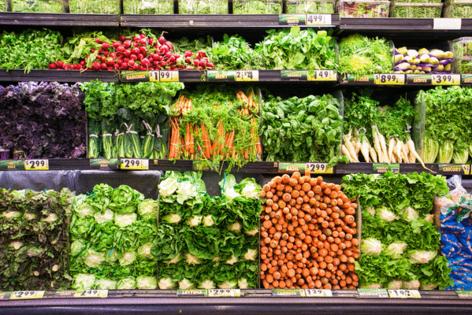On Nutrition: Surviving cancer
Published in Nutrition
A few months ago, I was privileged to speak at an event celebrating cancer survivors. As I prepared, I realized that I, too, am in that special group.
At a routine visit in 2021, I asked my dermatologist to take a look at a spot on my shoulder. To my relief, she reassured me it was nothing of concern.
“I do want to take a closer look at this one, though,” she said, referring to a tiny spot on my back that I wouldn’t have otherwise seen.
The biospy report confirmed her suspicions. It was melanoma — the most aggressive form of skin cancer. Fortunately, we caught it early and I was immediately scheduled to have the area around the site surgically removed. To say I am thankful is an understatement.
Cancer is characterized by uncontrolled growth and spread of abnormal cells in the body. According the National Cancer Institute (cancer.gov), approximately 38.9% of men and women will be diagnosed with some type of cancer during their lifetime. The good news: Up to 70% of cancer patients survive five or more years after being diagnosed.
Some cancers are related to our genetics — what we inherited from our parents. Others are connected to the environment in which we live as well as our lifestyle, which includes our diet choices. In fact, the old adage, “Genetics loads the gun but lifestyle pulls the trigger” is certainly true with cancer.
According to a 2020 article in the journal Cancers, one critical factor that may influence the development and spread of cancer is damage to our genetic DNA. What nutrients are involved in DNA repair? Zinc, found in Pacific oysters, lean meat, seafood, poultry and lentils; selenium, provided by Brazil nuts, tuna, sardines, shrimp, lean meats, poultry and fish; and folate in foods such as leafy green vegetables, dried beans and peas.
Scientists have also identified substances in cruciferous vegetables that activate specific genes shown to suppress the growth of cancer cells. This specialized group of plants includes broccoli, cauliflower, Brussels sprouts and cabbage as well as kale, arugula, bok choy, turnips, collard and mustard greens.
And don’t forget to make your plate as colorful as possible. Each pigment in fruits, vegetables and other plant-based foods represents a unique phytochemical, many of which are known to target and interfere with the development and spread of cancer cells.
In my case, I was extremely grateful for the medical team that was able to remove the abnormal growth from my body. And while nutrition is not a cure-all for cancer, it’s exciting that researchers have identified a number of dietary components that may help inhibit or slow the progression of this disease. The effects of the foods we choose have potential to influence our health all along the cancer path — from prevention to treatment to survival.
©2025 MediaNews Group, Inc. Distributed by Tribune Content Agency, LLC.










Comments